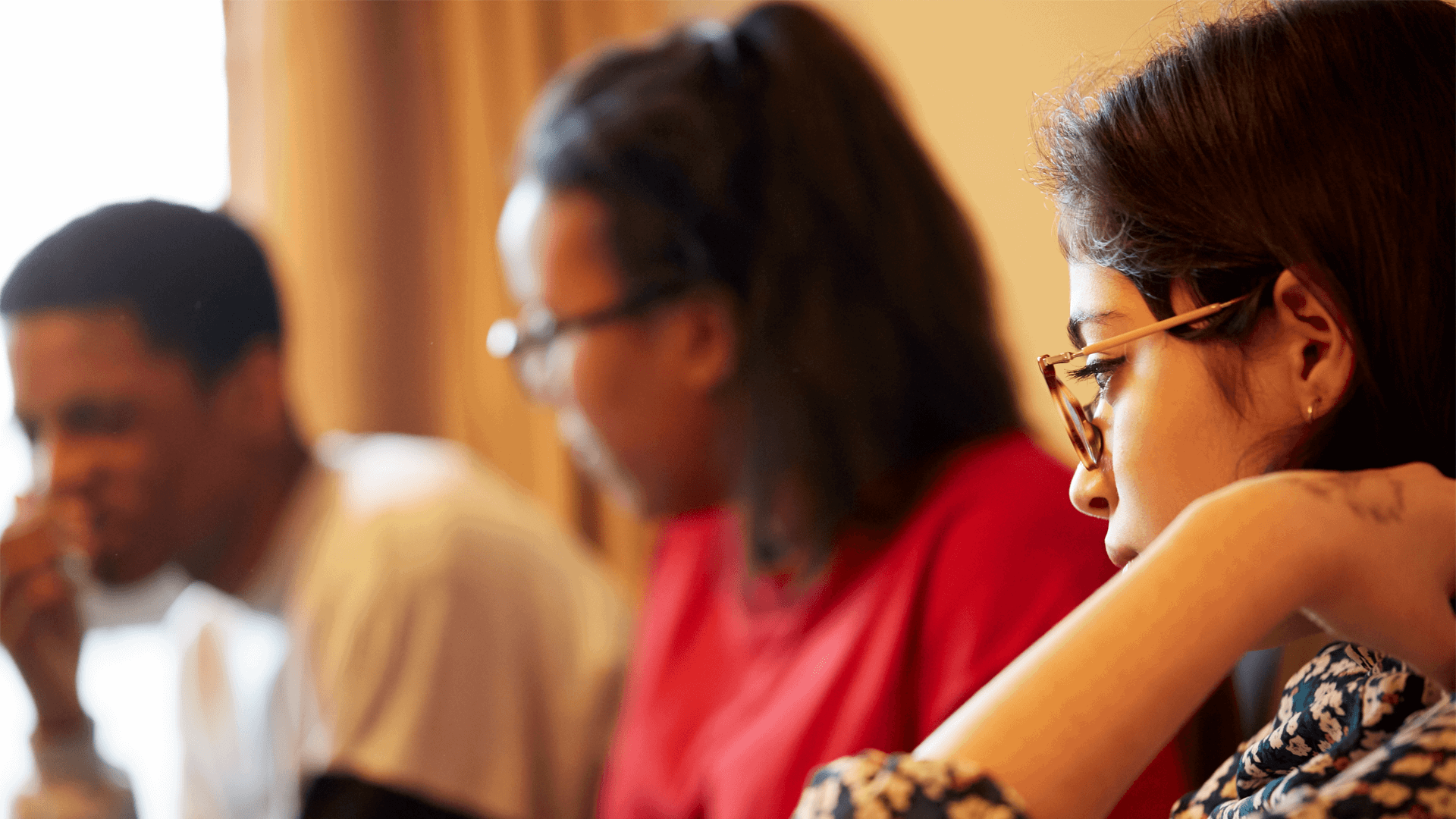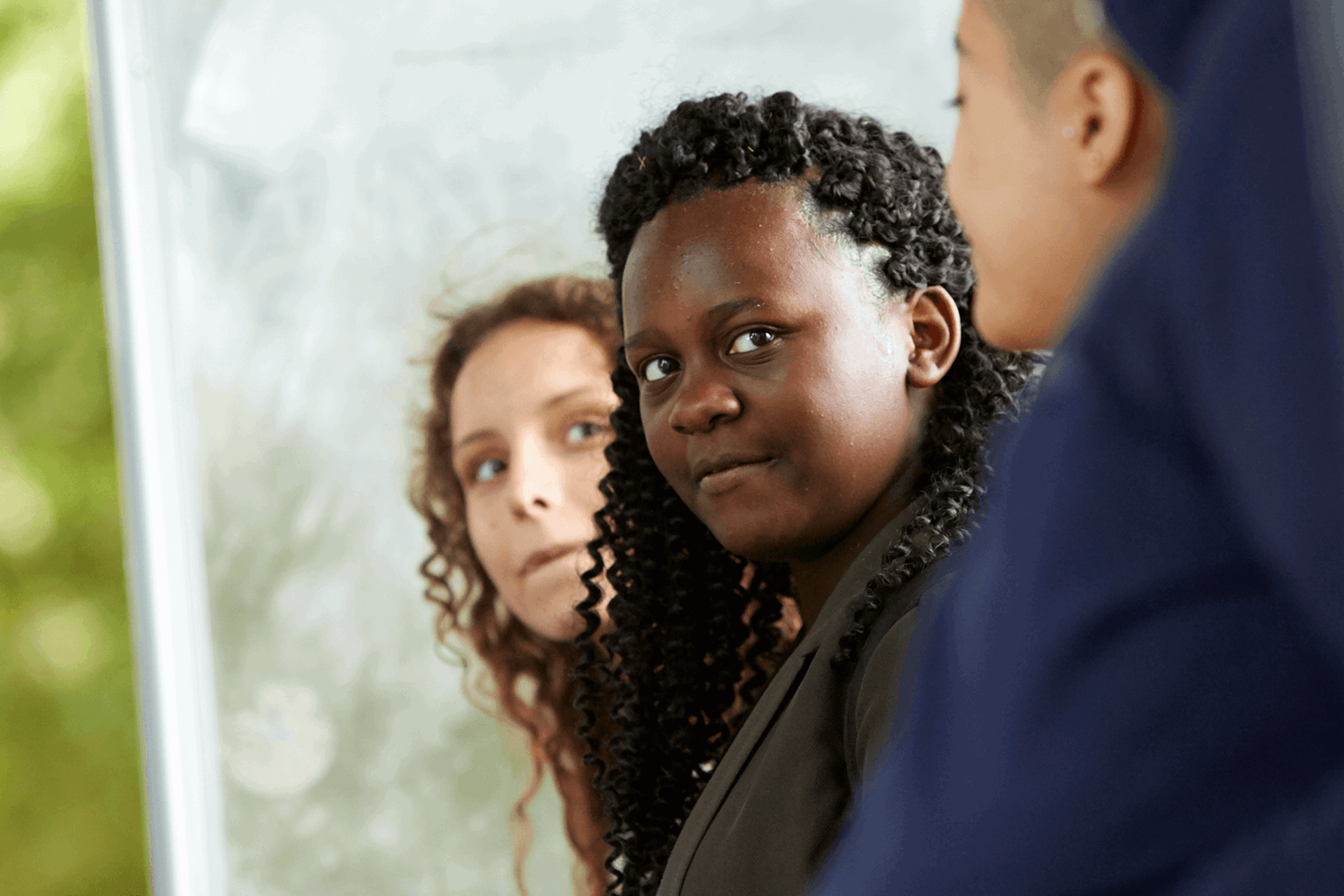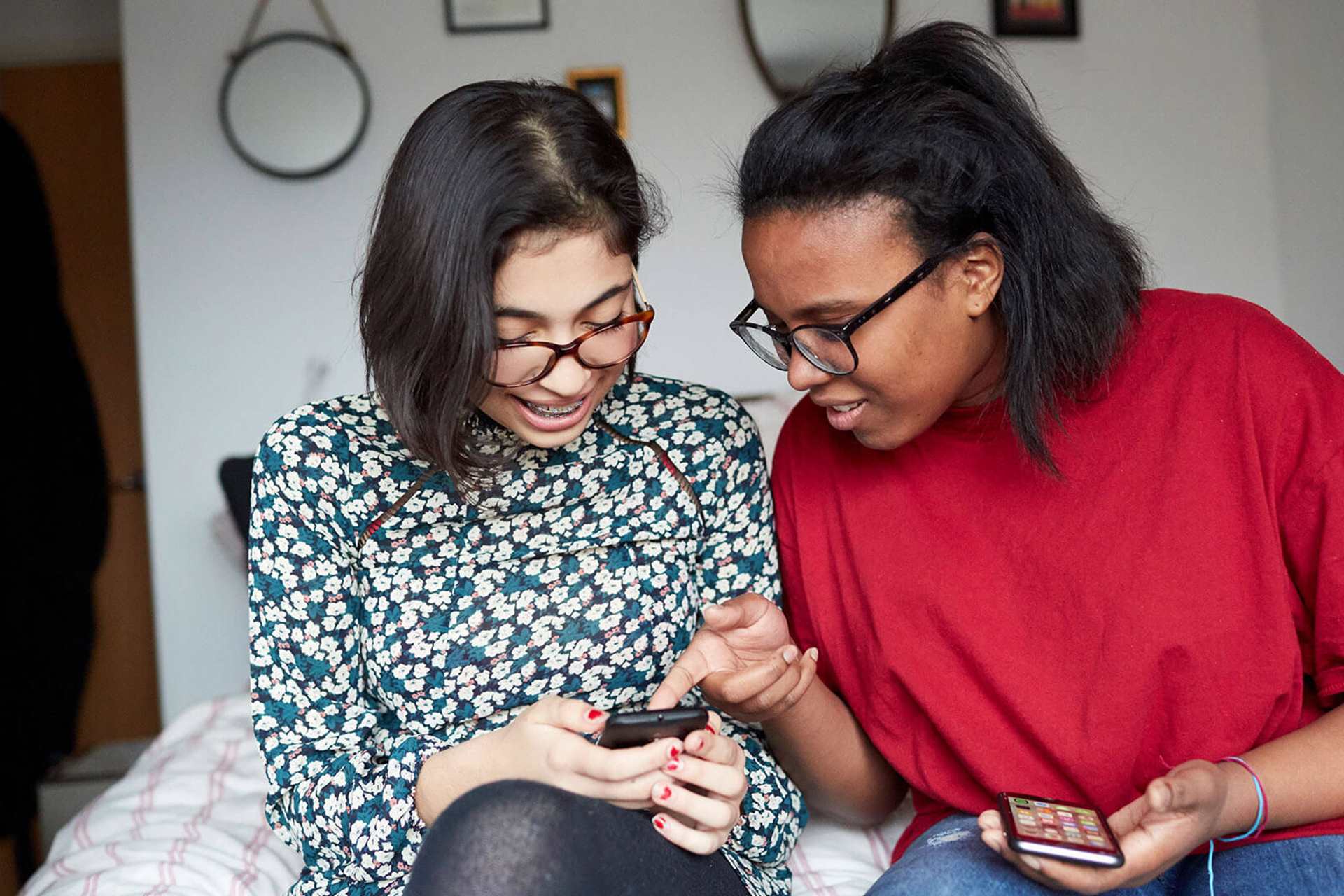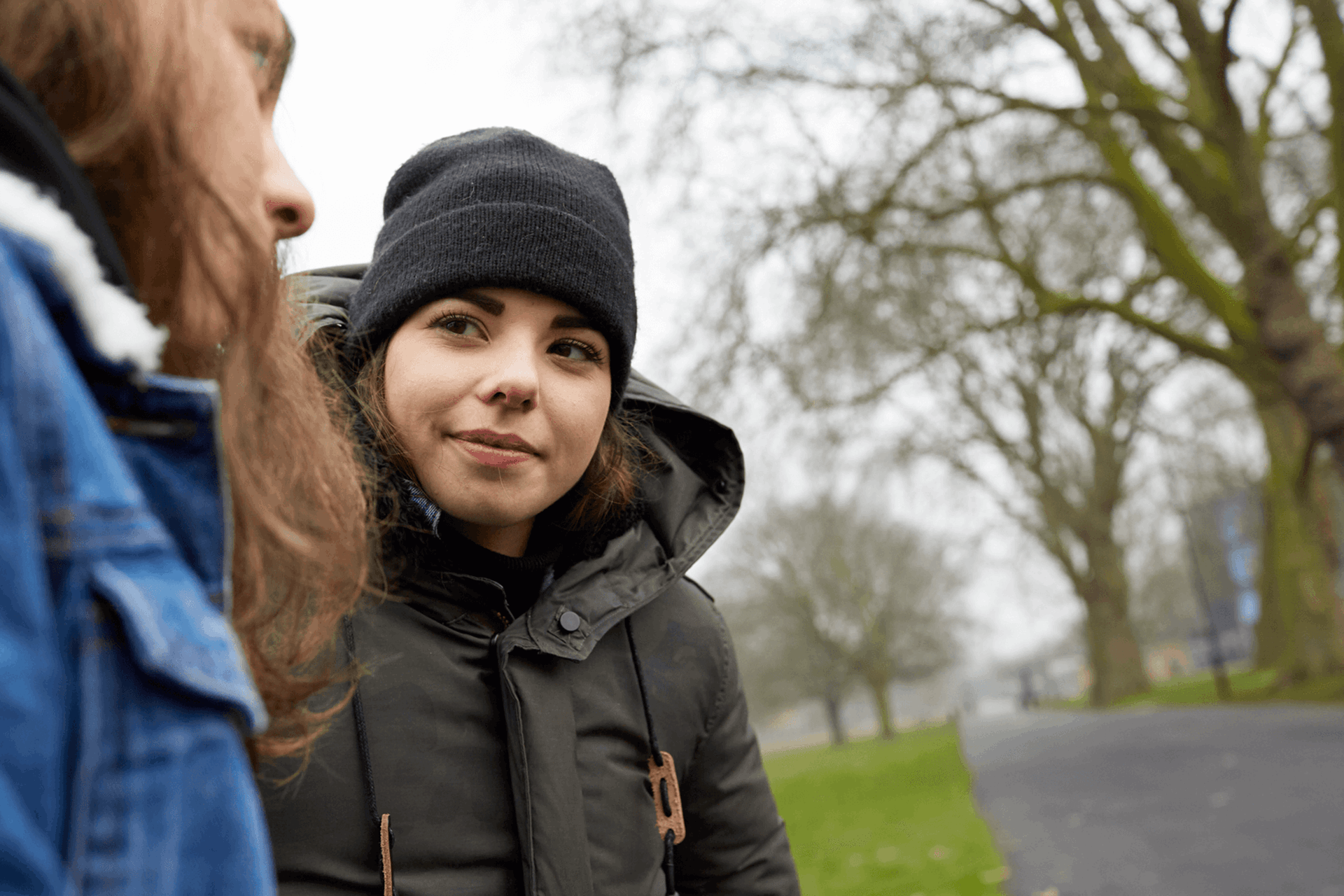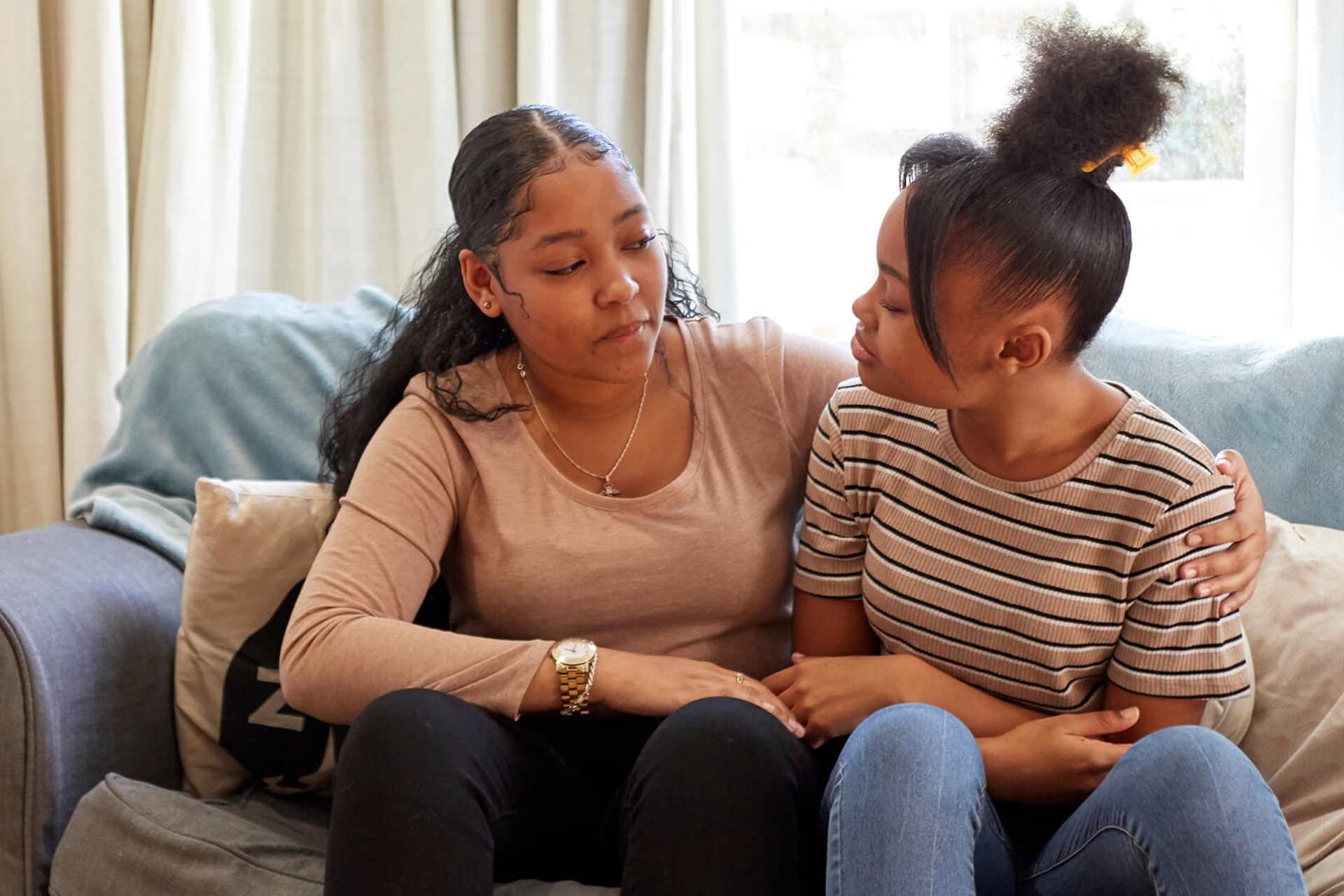Topics mentioned: eating problems, anorexia nervosa, racism and mental health
About: Kari shares her experience of anorexia nervosa in the British-Indian diaspora. She also explains how stigma and racism make it difficult for Black and racialised young people to get mental health support.
I didn’t want to fall victim to ‘log kya kayenge?’ (‘what will people say?’)
In 2018, I relapsed with anorexia nervosa, a condition I’ve struggled with for over a decade now. When I visited India for the first time last year, the country where my family are from, I thought I could leave my eating disorder behind during the trip. However, it followed me like the smell of a wet dog.
Being around unfamiliar foods and eating dinner daily with my extended family, most of whom I had never met before, was very difficult. As I have lived in London my whole life, and am no longer fluent in my mother tongue, I felt disconnected from the traditional Gujarati culture and attitudes. In India, having an eating disorder was another thing that made me feel even more alien.
To dismiss eating disorders as a ‘White girl’s issue’ has serious consequences for people of colour.
Racial discrimination and eating problems
Historically, eating disorders have been considered a Western illness, predominantly affecting young White women. This is reflected in scientific research, popular culture (celebs like Demi Lovato, Amy Winehouse) and the media (e.g. Netflix’s To the Bone). When my grandpa was questioned by a doctor regarding my sister and I’s weight - ‘why are these girls so slim?' - even he responded that it was because of ‘the UK lifestyle’.
In some respects, it’s true - modernity and Eurocentric beauty standards have definitely influenced the way we view bodies and food in the West. But to dismiss eating disorders as a ‘White girl’s issue’ has serious consequences for people of colour.
According to The Guardian’s analysis of NHS data, there was a 31% rise of eating disorder (ED) admissions from White communities between 2017 and 2020. However, there was an even bigger rate of ED admissions among those from an ethnic background (53%) and a staggering 216% rise of admissions specifically from the Black community.
Stigma and racial discrimination in healthcare has meant that people of colour aren’t able to seek out or access the right treatment.
If this is the case, why are people of colour still less likely to be asked about their ED symptoms by doctors? Why do psychiatrists often under-refer women of colour to ED services?
An increasing amount of people from diaspora communities in the UK are experiencing disordered eating, and our unique experience of having to juggle our ‘home’ culture with our life in the West is hardly spoken about in discussions around mental healthcare. Stigma and racial discrimination in healthcare has meant that people of colour aren’t able to seek out or access the right treatment.
In my family, talking about your mental health was as taboo as discussions on safe sex, interracial marriage or drugs.
My experience of anorexia
Like any teenager growing up, I found it difficult to articulate or express ‘negative’ emotions, like insecurity, anxiety and sadness. In my family, talking about your mental health was as taboo as discussions on safe sex, interracial marriage or drugs. I was brought up to believe that worth and success is dependent on higher academic performance and stoicism - enduring hardship and getting on with it.
If you were a woman, the stakes were even higher; your worth was also linked to your weight, skin colour, beauty and obedience. In fact, my mum and aunts would often talk about sacrificing their personal dreams and desires to marry and start a family in the UK. Suffering (like domestic violence, unhappy marriages and poor mental health) became normalised, part and parcel of life.
I started replacing difficult thoughts and feelings with thoughts about food, eating and weight.
It was normal to be constantly scrutinised about your appearance in my extended family. When me and my sister were kids, we were gifted skin-lightening products from our own grandma. From the age of five, I was compared to a cousin the same age as me, who was fair-skinned, slim and ‘prettier’.
I grew up with very low self-esteem, and while Western celebrity culture was definitely toxic, my body image issues actually started at home. In Indian culture, food is often a meeting point; a hot pot to bring families together.
So, on the one hand, you’re encouraged to stay slim, while on the other you’re expected to enjoy food socially. And at the all-girls grammar school I went to, it was all about the best grades, the top universities, the well-paid jobs, even if it meant sacrificing your wellbeing.
As eating disorders are inherently secretive in nature, I thought I’d get away with it.
By year nine, I started replacing difficult thoughts and feelings with thoughts about food, eating and weight. Thinking about the calories in a yoghurt or how much to eat for dinner was more tangible, something within my control.
I was scared of opening up about my mental health because I didn’t want to be seen as a ‘problem kid’ in my family or a burden, a failure. I didn’t want to fall victim to ‘log kya kayenge?' (‘what will people say?’).
As eating disorders are inherently secretive in nature, I thought I’d get away with it. But the constant restricting, lying and destructive behaviour led to my whole life crumbling and I couldn’t function. I stopped going to school, didn’t have friends, started self-harming and was eventually hospitalised.
With family therapy, the knowledge and more psychological support, my parents and sister became my biggest supporters. We now work together to fight mental health stigma that persists in our wider community.
With family therapy, the knowledge and more psychological support, my parents and sister became my biggest supporters.
A small survivor's guide
Below are some resources to help you find support for eating problems.
- Noticing the first signs of an eating problem (in yourself or someone you know)
- Confide in one trusted adult (family member, teacher, friend) who can become your ally during mealtimes, family gatherings, celebrations etc.
- BEAT helpline
- More useful contacts
- Do What You Want: A Zine about Mental Wellbeing by Ruby Tandoh
- It's Time to Correct the Narrative Surrounding Black Girls and Eating Disorders by Anissa Gray
- When Black Girls Hear That ‘Our Bodies Are All Wrong’ by Mikki Kendall
More information and advice
We have tips and advice to help you find the support you need. Take a look at our guides.
Where to get help
However you're feeling, there are people who can help you if you are struggling. Here are some services that can support you.
-
Beat
Offers information and support for anybody affected by eating disorders.
One-to-one web chat available. They also run a range of online support groups, which are all fully moderated and anonymous.
Enter your postcode in the HelpFinder to see what eating disorder support is available in your area.
View their information on helpline accessibility and confidentiality.
- Opening times:
- 365 days a year - weekdays (9am - 8pm); weekends (4pm - 8pm)
